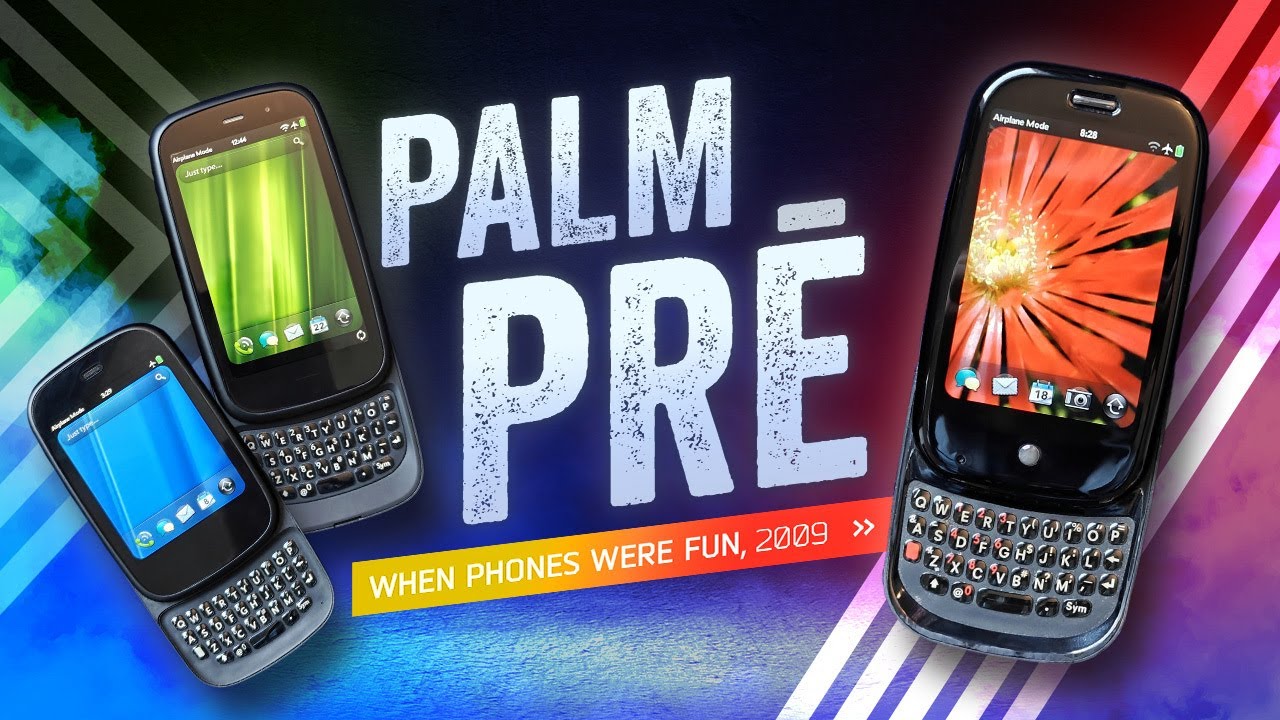I loved my Palm Prē. So many things they innovated that we take for granted now.
Such a shame they weren’t able to stick around long enough to properly compete.
Me too. Loved that thing. I remember when I was able to truly multitask and switch applications seamlessly. It was great. I still feel like iOS and android don’t switch between apps as smoothly as I was able to do on my pre.
Only took android 15 years to get it sort of right. 2009 pre was ahead of its time.
Towards the end you could easily load custom kernels to try and make the os less laggy. Ahh those were the days …
I remember overclocking mine so that it was smooth lol. Was great.
Petition to bring back full qwerty portrait oriented keyboard sliders like this. I miss this hardware style.
Or the scroll wheel stuff, it looked really good when UIs are made for it.
I still have one in my basement somewhere, I miss the palm os, it was really awesome at the time
Palm had the opportunity and missed it.
Build a new OS, one with support for existing apps (granted, they’d have limited ability to interact with the modern Palm OS), and you get to keep existing customers.
OH how I miss Palm. Splashshopper is still a better shopping list app than anything I use today, I used to play Monopoly on my Treo, and watch movies from the SD card when I was traveling (but boy it used battery).
They probably designed the stuff to be useful so they could sell phones instead of app makers who wanna extract extra money with their apps.
WebOS really was so hard ahead of its time. A card based interface, gesture-based navigation, unified and always online email and account systems. There were many things WebOS did that we take for granted now, yet they did it no less than 5 years before Android or iOS. Really it was just the Palm Pre’s hardware (I had a Palm Pre Plus) that held it back. Some aspects of it were already a bit dated, even in 2010.
Really it was just the Palm Pre’s hardware that held it back
I’d argue it was just purely the rat race of “the most apps” where all other vendors lost out to iOS and Android. It didn’t matter that it had all the essential applications, as well as having plenty of the fads/gimmicks of the time (Angry Birds, Pandora, et al) natively supported, it still boiled down to the normie logic of “BUT I WANNA RUN ALL THE APPS!” There was also the whole culture sentiment of “if you make a niche Android/iOS app and sell it, you could become like a millionaire overnight” that people seemed to clamor around, as another gimmick economy (as The Next Big Thing™ after the dot-com bubble).
There was also the tidbit that most of the operating system (outside of Linux kernel and standard utils) was proprietary. It’s only when it was pretty much given up on, that they started to open it up as various open source projects. Comparatively Android was far more open source than webOS at the time.
@arcanicanis @southernwolf @boredsquirrel >There was also the whole culture sentiment of “if you make a niche Android/iOS app and sell it, you could become like a millionaire overnight” that people seemed to clamor around, as another gimmick economy (as The Next Big Thing™ after the dot-com bubble).
Oh I remember this so vividly, this was the mindset among the tech illiterate because they read about Steve Jobs or Mark Zuckerberg and saw they were rich. Or they’d hear a news story about how RANDOM KID GETS RICH FROM MAKING APP without knowing the how and why he did it, just that he can get rich from making an app. They’re like the guys in college I saw taking sysadmin classes thinking that maybe they could make video games or some shit, before all but the shittiest community colleges added gamedev courses.
I also remember during this timeframe that the niche mobile OSes with users would notably attract the same kind of developers as unpopular microcomputers did (Linus Torvalds and his Sinclair QL come to mind): random guys making up for how said platform was being abandoned by the world. Windows Phone 7/8/10 had a lot of these developers who would write third party clients for websites or chat platforms (one of the NZ shooting victims was one such dev) and back in the day everyone pretty much had to use one if they didn’t want to struggle with IE. Some of these types of devs still exist in the tiny KaiOS sphere.
Something else about the Pre I vividly remember was that the Pre was not only carrier locked, but it was carrier locked to one of the CDMA companies. There was unusually no unlocked GSM version for sale in the USA. This was a big sour spot during this timeframe, anyone who remembers this era also remembers the years of Verizon users asking for a CDMA iPhone or Geohot making a name for himself by unlocking a iPhone 2G to work on T-Mobile. This hurt a phone trying to be mass market when you could only buy the big name phone on Sprint of all places.
The pre 2 was the sweet version, but webos is all I ever wanted. 😭
And the glass screen. Never forget what HP took from us.
I loved my BlackBerry
I had one. I really liked it but there were a couple of major downsides I remember. If you had to reboot it, it took many minutes to come back up. It also had the build quality of a sand castle. My wife and I both went through multiple devices in the couple of years we had them. It was my first smart phone.
I had a treo 650, a centro, and a tungsten before that and they worked shockingly well looking back on them.
Whenever I read #facepalm I think of the pre











